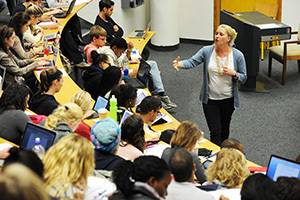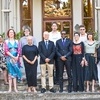Colloquium kick-starts review of 10-year-old policy
20 May 2014 | Story by Newsroom
"Recognition of prior learning (RPL) is about much more than enabling students with different kinds of experience to enter the system. It's a very important intellectual project within the global context of knowledge and curriculum."
This was the opening remark of Associate Professor Suellen Shay, dean of the Centre for Higher Education Development (CHED), at a symposium on the recognition of prior learning, held in April.
"We all know of contexts where people's experience is what counts," Shay continued. "What's important is not what theory you know, but what you can do. This kind of knowledge has its own legitimacy and its own specialisation."
Shay explained how the work of those in the field of RPL makes these different forms of knowledge visible, and facilitates the building of bridges between them.
RPL case studies
The colloquium ran two sessions featuring RPL case studies from across UCT '“ including nursing, disability studies, social development and adult education. A lively panel on the pros and cons of standardised assessment in RPL was hosted by Robert Prince (Centre for Educational Testing for Access and Placement) with input from Alan Ralphs (University of the Western Cape Division of Lifelong Learning), Alan Cliff (Centre for Innovation in Learning and Teaching) and Judy Favish (representing the UCT Adult Learner Subcommittee).
The colloquium started this year's project of reviewing the RPL policy by asking participants to indicate how it supports or hinders their practice. Follow-up sessions will be set up in the course of the year to identify aspects of the policy which need updating.
UCT's current policy defines RPL as "the evaluation and acknowledgement of the knowledge and skills that a candidate has gained, other than through formal study, to enable them to gain access to higher education, even though they don't meet the normal entrance requirements. This includes knowledge gained as a result of non-formal study, paid and unpaid work experience, community and organisational involvement, and individual inquiry".
Read UCT's existing RPL policy.
Story by Abigail Calata. Image of students in a lecture at UCT by Michael Hammond.
 This work is licensed under a Creative Commons Attribution-NoDerivatives 4.0 International License.
This work is licensed under a Creative Commons Attribution-NoDerivatives 4.0 International License.
Please view the republishing articles page for more information.










